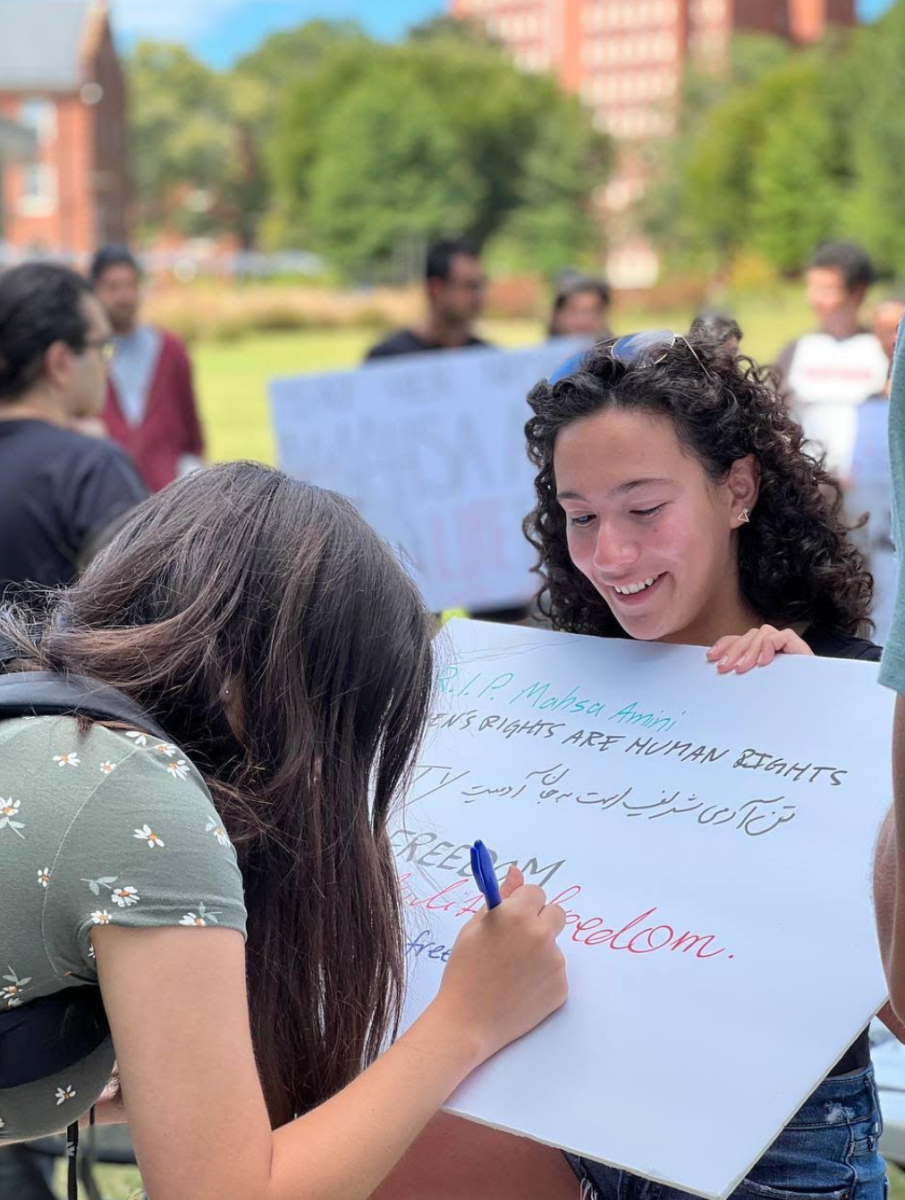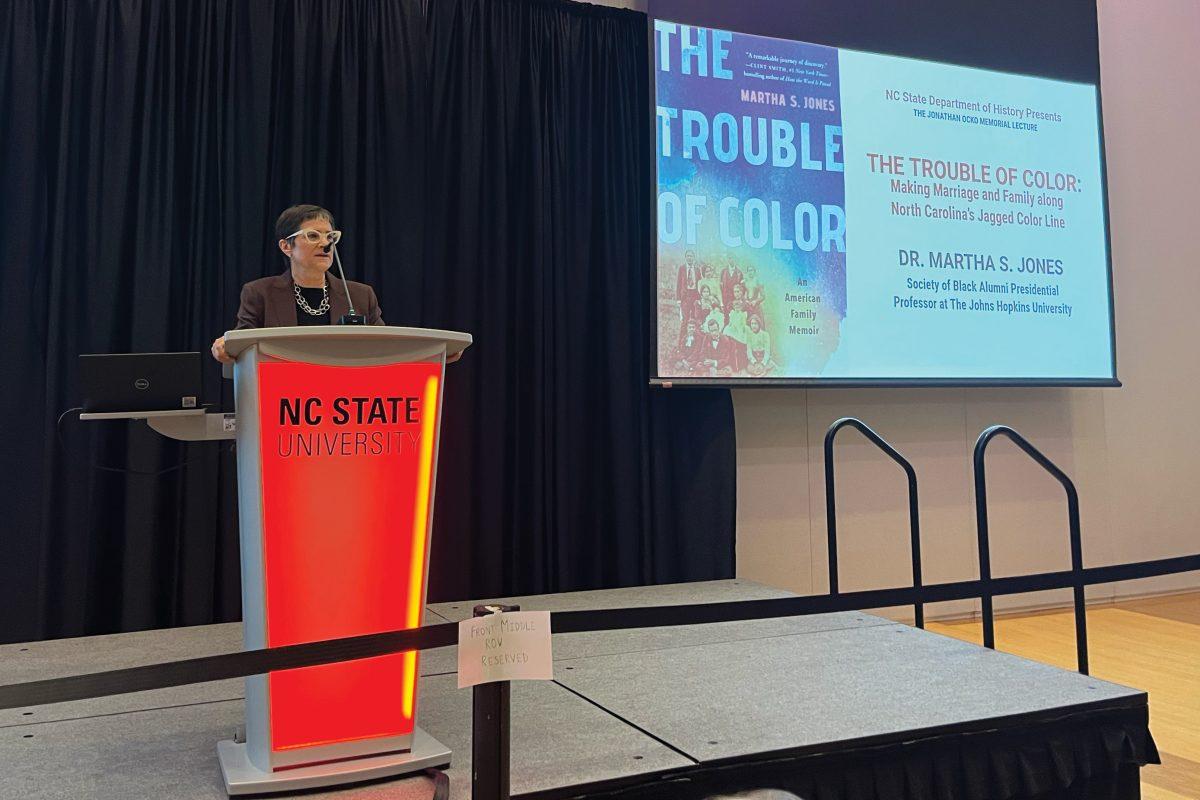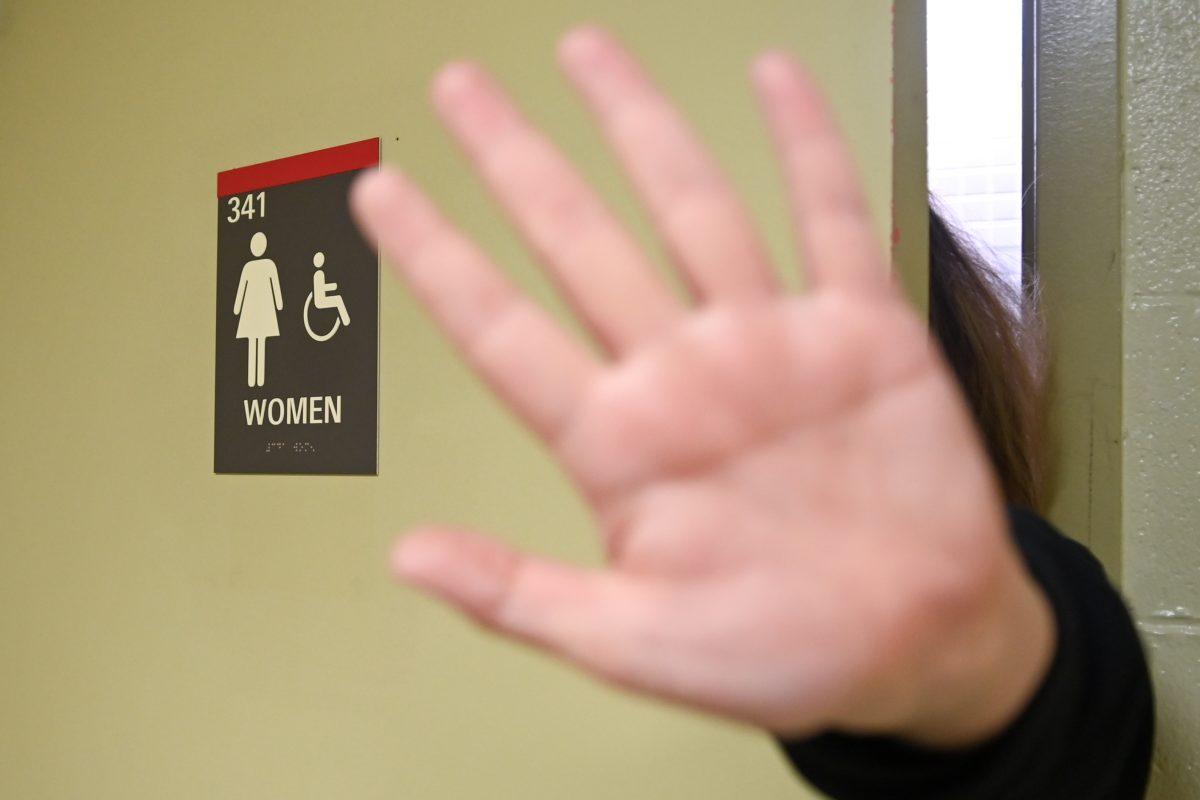The Iranian Student Association (ISA) joined a global movement to raise awareness about protests in Iran.
Iranian protests sparked after the death of Mahsa Amini, a 22-year-old woman who died Sept. 16 in the custody of Iran’s morality police after being detained for allegedly violating the country’s hijab law. The demonstrations, led by young women, call for an end to Iran’s Islamic Republic and have been met with a violent government crackdown.
Azin Saberi Bosari, a third-year studying chemical engineering and a member of the ISA, said Iranian students have a deep personal connection to the events in Iran. The ISA acts as a support system for students and a catalyst for activism on campus.
“We have a lot of people here who, their entire family is in Iran, and throughout this process, they lost access to internet completely as a country because [the government doesn’t] want anything to get out,” Saberi Bosari said. “So we saw it upon us as a student organization to create a safe space, first of all, for students to feel connected, united, and then also getting the word out there.”
The ISA held a memorial for Amini on Stafford Commons Monday, Sept. 26. Students held posters with the phrase “Woman, Life, Freedom,” an expression that has become the rallying cry of protesters in Iran, and “#Freedomforiranianwomen.” Others gave speeches, cut their hair as a symbol of protest and mourning and spoke with individuals who passed by about the Iranian protests.
A graduate student in electrical engineering and a member of the ISA said women are treated as second-class citizens in Iran, and it is important to amplify the voices of Iranian women who demand freedom.
“For me, I moved to the U.S. when I was approximately 30 years old,” she said. “Thirty years, I’ve been dealing with this system that’s like, as a girl, you could never be a singer, a judge or ride a bike. You could have all of those rights if you were born 60 miles across from the borders of Iran in Turkey. So it is really important [for] people to know what’s really happening.”
The graduate student said women are expected to cover their hair and wear loose clothing that covers their arms and legs. She said she was arrested by the morality police in Iran about six years ago while wearing a head covering, pants and a long-sleeved shirt because her shirt did not reach past her knees, and most women in Iran have been arrested by the morality police for violating dress codes at least once.
“Most of the women in Iran do not like this hijab — it’s not that we are against a specific religion,” she said. “What we’re looking for is that we will have that freedom of choice, so that for example, if someone is a Christian, if someone is Baháʼí, or they’re practicing other religions, they could also have the freedom of how to dress, or what they want to do. And also if someone is Muslim and really likes to wear a hijab, they could also wear their hijab.”
On Saturday, Oct. 1, the ISA spray-painted the Free Expression tunnel with illustrations of Amini and phrases such as “Stand with Iranian Women” and “Be Iranian’s Voice.” According to Saberi Bosari, this act prompted many conversations between passersby and members of the ISA, and she hopes to continue to bring attention to the events in Iran.
“For me, it’s really important to fight for the people in my country and also raise awareness so everyone else [knows] what’s going on, because a lot of times, when they don’t know what’s going on, they’re not going to do anything about it,” Saberi Bosari said.
Saberi Bosari said the University hasn’t done enough to support current Iranian students and prospective students who live in Iran. She said due to the Iranian government’s disruption of internet access, Iranian students cannot submit applications to NC State, and the University should modify application deadlines in acknowledgment of this. Furthermore, due to U.S. economic sanctions against Iran that prevent banking relations, paying application fees can be difficult for Iranian students. Additionally, the University should be understanding of how events in Iran may be a source of anxiety for students, she said.
“I think staff and faculty being really understanding of what Iranians are going through is really important when it comes to deadlines or exams or anything, because this is stuff that’s about their families — it’s about my family,” Saberi Bosari said.
To learn more about the ISA and see updates on future events, follow their Instagram page @isa_ncsu.












